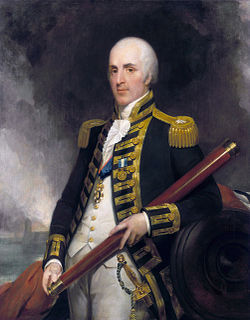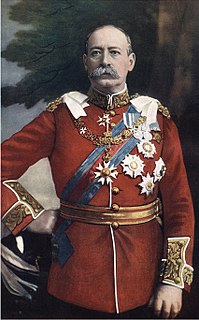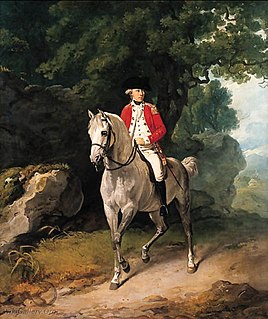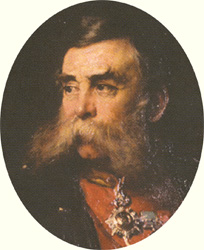 W
WThe Governor-General of Malta was the official representative of Elizabeth II, Queen of Malta, in the State of Malta from 1964 to 1974. This office replaced that of the Governor, and it was replaced by that of President upon the proclamation of the Republic of Malta on 13 December 1974.
 W
WThe Governor of Malta was an official who ruled Malta during the British colonial period between 1813 and 1964. This office replaced that of the Civil Commissioner. Upon the end of British rule and the creation of the State of Malta in 1964, this office was replaced by the Governor-General, who represented the British Monarch and not the Government of the United Kingdom as did the Governor. The office of Governor-General was itself abolished in 1974 and replaced by the post of President when Malta became a Republic.
 W
WThe Governor of Malta was an official who ruled Malta during the British colonial period between 1813 and 1964. This office replaced that of the Civil Commissioner. Upon the end of British rule and the creation of the State of Malta in 1964, this office was replaced by the Governor-General, who represented the British Monarch and not the Government of the United Kingdom as did the Governor. The office of Governor-General was itself abolished in 1974 and replaced by the post of President when Malta became a Republic.
 W
WThe Civil Commissioner of Malta was an official who ruled Malta during the French blockade and later the British protectorate period between 1799 and 1813. Upon the end of the Protectorate and the creation of the Crown Colony of Malta in 1813, this office was replaced by that of the governor, who represented the Government of the United Kingdom.
 W
WSir Alexander John Ball, 1st Baronet was a Rear-Admiral and Civil Commissioner of Malta. He was born in Ebworth Park, Sheepscombe, Gloucestershire. He was the fourth son of Robert and Mary (Dickinson) Ball and the younger brother of Ingram Ball.
 W
WClaude-Henri Belgrand de Vaubois was a French general during the French Revolutionary Wars and the Napoleonic Wars. On 20 August 1808 he was created Comte de Belgrand de Vaubois. Later, his name was inscribed on the Arc de Triomphe in Paris.
 W
WGeneral Sir Arthur Borton was a British Army officer who became Governor of Malta.
 W
WGeneral Sir David Graham Muschet "Soarer" Campbell was a cavalry officer of the British Army, amateur sportsman, and later Governor of Malta.
 W
WGeneral Sir Walter Norris Congreve was an English Army officer in the Second Boer War and the First World War, and Governor of Malta 1924-1927. He received the Victoria Cross, the highest and most prestigious award for gallantry in the face of the enemy that can be awarded to British and Commonwealth forces.
 W
WLieutenant General Sir William George Shedden Dobbie, was a British Army veteran of the Second Boer War and the First and Second World Wars.
 W
WGeneral Sir John Philip Du Cane, was a British Army officer. He held high rank during the First World War, most notably as Major General Royal Artillery at General Headquarters in 1915 when the British Expeditionary Force (BEF) was expanding rapidly, as General Officer Commanding XV Corps 1916–18, then from April 1918 as liaison officer between Field Marshal Sir Douglas Haig and the Allied Generalissimo Ferdinand Foch. After the war he was Master-General of the Ordnance.
 W
WGeneral Sir Arthur James Lyon Fremantle was a British Army officer and a notable British witness to the Battle of Gettysburg during the American Civil War. Whilst holding the rank of "Captain and Lieutenant Colonel" he spent three months in North America, travelling through parts of the Confederate States of America and the Union. Contrary to popular belief, Colonel Fremantle was not an official representative of the United Kingdom; instead, he was something of a war tourist.
 W
WField Marshal John Standish Surtees Prendergast Vereker, 6th Viscount Gort, was a senior British Army officer. As a young officer during the First World War he was decorated with the Victoria Cross for his actions during the Battle of the Canal du Nord. During the 1930s he served as Chief of the Imperial General Staff. He is best known for commanding the British Expeditionary Force that was sent to France in the first year of the Second World War, only to be evacuated from Dunkirk the following year. Gort later served as Governor of Gibraltar and Malta, and High Commissioner for Palestine and Transjordan.
 W
WField Marshal Sir Patrick Grant, was a senior Indian Army officer. He fought at the Battle of Maharajpore during the Gwalior Campaign, at the Battle of Mudki, the Battle of Ferozeshah and the Battle of Sobraon during the First Anglo-Sikh War and at the Battle of Chillianwala and the Battle of Gujrat during the Second Anglo-Sikh War. During the Indian Mutiny, as acting Commander-in-Chief, India, he directed the operations against the mutineers, sending forces under Henry Havelock and James Outram for the relief of Cawnpore and Lucknow. He later became Governor of Malta.
 W
WField Marshal Francis Wallace Grenfell, 1st Baron Grenfell, was a British Army officer. After serving as aide-de-camp to the Commander-in-Chief, South Africa, he fought in the 9th Xhosa War, the Anglo-Zulu War and then the Anglo-Egyptian War. He went on to become Sirdar (Commander-in-Chief) of the Egyptian Army and commanded the forces at the Battle of Suakin in December 1888 and at the Battle of Toski in August 1889 during the Mahdist War. After that he became Governor of Malta and then Commander-in-Chief, Ireland before retiring in 1908.
 W
WFrancis Edward Rawdon-Hastings, 1st Marquess of Hastings, KG, PC, styled The Honourable Francis Rawdon from birth until 1762, Lord Rawdon between 1762 and 1783, The Lord Rawdon from 1783 to 1793 and The Earl of Moira between 1793 and 1816, was an Anglo-Irish politician and military officer who served as Governor-General of India from 1813 to 1823. He had also served with British forces for years during the American Revolutionary War and in 1794 during the War of the First Coalition. He took the additional surname "Hastings" in 1790 in compliance with the will of his maternal uncle, Francis Hastings, 10th Earl of Huntingdon.
 W
WMajor-General Sir Robert Edward Laycock was a senior British Army officer, most significant for his service with the British Commandos during the Second World War.
 W
WLieutenant General Sir John Gaspard Le Marchant (1803–1874) was a British Army officer and governor of Newfoundland from 1847 to 1852. He later became the Lieutenant Governor of Nova Scotia (1852–1858).
 W
WLieutenant General The Right Honourable Sir Thomas Maitland was a British soldier and colonial governor. He also served as a Member of Parliament for Haddington from 1790–1796, 1802–06 and 1812–13. He was made a Privy Councillor on 23 November 1803. He was the second surviving son of James Maitland, 7th Earl of Lauderdale, and the younger brother of James Maitland, 8th Earl of Lauderdale. Maitland never married.
 W
WSir Anthony Joseph Mamo, was the first President of Malta and previously served as the last Governor-General of the State of Malta before the country became a republic. He was also the first Maltese citizen to be appointed Governor-General, and before independence, briefly served as acting Governor.
 W
WField Marshal Paul Sanford Methuen, 3rd Baron Methuen, was a British Army officer. He served in the Third Anglo-Ashanti War in 1873 and then in the expedition of Sir Charles Warren to Bechuanaland in the mid 1880s. He took a prominent role as General Officer Commanding the 1st Division in the Second Boer War. He suffered a serious defeat at the Battle of Magersfontein, during which he failed to carry out adequate reconnaissance and accordingly his artillery bombarded the wrong place leading to the Highland Brigade taking heavy casualties. He was later captured by the Boers at Tweebosch. After the war he became General Officer Commanding-in-Chief in South Africa in 1908, Governor and Commander-in-Chief of Natal in 1910 and then Governor and Commander-in-Chief of Malta in 1915.
 W
WLieutenant-General Sir Hildebrand Oakes, 1st Baronet, GCB was a British Army officer.
 W
WGeneral Sir Henry Pigot GCMG was a British Army officer.
 W
WField Marshal Herbert Charles Onslow Plumer, 1st Viscount Plumer, was a senior British Army officer of the First World War. After commanding V Corps at the Second Battle of Ypres in April 1915, he took command of the Second Army in May 1915 and in June 1917 won an overwhelming victory over the German Army at the Battle of Messines, which started with the simultaneous explosion of a series of mines placed by the Royal Engineers' tunnelling companies beneath German lines, which created 19 large craters and was described as the loudest explosion in human history. He later served as Commander-in-Chief of the British Army of the Rhine and then as Governor of Malta before becoming High Commissioner of the British Mandate for Palestine in 1925 and retiring in 1928.
 W
WMajor General Hon. Sir Frederick Cavendish Ponsonby was an Anglo-Irish military officer.
 W
WGeneral Sir Henry Macleod Leslie Rundle, was a British Army general during the Second Boer War and the First World War.
 W
WSir Edmund Charles Acton Schreiber, was a senior British Army officer who served in both the First World War and the Second World War. In the latter he commanded the 45th Infantry Division, V Corps and the British First Army.
 W
WField Marshal Sir John Lintorn Arabin Simmons was a British Army officer. Early in his career he served as Inspector of Railways, Secretary of the Railways Commission and then Secretary of the Railway Department under the Board of Trade. He went on to be British Commissioner with the Turkish Army providing advice to General Omar Pasha during the Crimean War. He assisted the Turks at the defence of Silistra and then led them at the Battle of Giurgevo before landing with them at the Battle of Eupatoria and remaining with them for the Siege of Sevastopol. After that he became British Consul in Warsaw, Commander, Royal Engineers at Aldershot and then Director of the Royal Engineer Establishment in Chatham. He went on to be Lieutenant-Governor of the Royal Military Academy and subsequently Governor of the Academy. His last appointments were as Colonel Commandant of the Royal Engineers, as Inspector General of Fortifications and then as Governor of Malta.
 W
WGeneral Sir Henry Augustus Smyth was a senior British Army officer. He was the son of Admiral William Henry Smyth and the brother of astronomer Charles Piazzi Smyth and geologist Sir Warington Wilkinson Smyth. Of his sisters, Henrietta married the theologian Baden Powell and Georgiana the anatomist Sir William Henry Flower.
 W
WLieutenant General Sir Henry Knight Storks was a British soldier and colonial governor.
 W
WGeneral Sir Charles Thomas van Straubenzee, was a British Army officer. He served as Commander of British Troops in China and Hong Kong, and Governor of Malta.
 W
WLieutenant General Sir Henry D'Oyley Torrens was a British army officer and colonial governor. He was born in Meerut, India, the son of Henry Whitelock Torrens and Eliza Mary Roberts and died in London.
 W
WField Marshal Sir Alexander George Woodford, GCB, KCMG, was a British Army officer. After taking part in the Anglo-Russian invasion of Holland, he served in most of the battles of the Napoleonic Wars. During the Hundred Days he commanded the 2nd battalion of the Coldstream Guards at the Battle of Quatre Bras, the Battle of Waterloo and the storming of Cambrai. He went on to become lieutenant governor and brigade commander at Malta, lieutenant governor and brigade commander at Corfu and then commander of the British garrison on the Ionian Islands before being appointed Governor and Commander-in-Chief of Gibraltar.